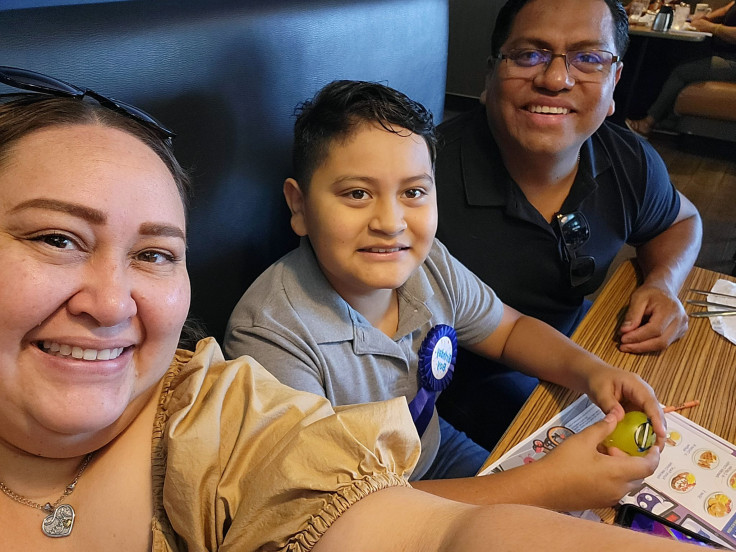
Alcibiades Rosado has spent nearly three decades building a life and a family in the United States. But now his future hangs in balance as he awaits the outcome of a court battle that could determine the legal status of more than 500,000 undocumented spouses of U.S. citizens.
Rosado, 45 and originally from Oaxaca, Mexico, arrived in New York City in 1996 at the age of 17. Since then, he has worked tirelessly in the restaurant industry, eventually settling in Edinburg, Texas, with his wife, Diana Torres, a U.S. citizen born in the Rio Grande Valley. The couple married in 2010 after a two-year long-distance relationship and have raised two children, now 18 and 12 years old.
But despite 14 years of marriage, Rosado remains undocumented, living with the constant fear of deportation. "Every day you leave your house and you don't know if you're going to come back," he says. "The fear is always there."
"For us, this program was a lifeline," Rosado said, referring to the Biden administration's "Parole in Place" program. Officially named "Keeping Families Together," the program offered undocumented spouses of U.S. citizens like Rosado a pathway to legal residency and eventual citizenship without having to leave the country.
However, that hope was put on hold this week when U.S. District Judge J. Campbell Barker issued a temporary suspension of the program. The decision followed a lawsuit filed by 16 Republican-led states, spearheaded by Texas Attorney General Ken Paxton, who argued that the program incentivizes illegal immigration and bypasses Congressional authority.
The lawsuit, filed in a federal court in Tyler, Texas, claims that the program is an overreach of executive power and would cause "irreparable harm" to the states involved. In response, Judge Barker's ruling has paused the program for at least two weeks while legal proceedings continue.
Rosado, who quickly submitted his application on August 20, one day after the program opened, now finds himself in limbo. "I had faith," he said. "I've been waiting for this, and when it was announced, I thought, 'Why did it take so long?'"
The legal challenge has left Rosado and his family facing an uncertain future, their dreams of security and stability now tied to the outcome of the court case. "We had to take out a loan to pay for the legal fees and application costs," Rosado explained. "If the program is canceled, we'll be left without papers and in debt."
In response to the lawsuit, six undocumented immigrants, alongside their U.S. citizen spouses, filed a motion on Monday seeking to intervene in the case to defend the program. They are supported by the Coalition for Humane Immigrant Rights (CHIRLA), a nonprofit organization based in Los Angeles. These families argue that the lawsuit unfairly jeopardizes their ability to stay together and pursue legal status.
In an interview with the Latin Times, CHIRLA's Executive Director Angélica Salas said she believes the urgency with which the lawsuit was filed is politically motivated. "They don't want to give any kind of political win to the Biden administration," she said. "There is a cold-hearted element to all of this. J.D. Vance talks about the importance of American families with children while also completely disregarding and attacking these taxpaying families with U.S. citizens."
Salas expressed surprise, noting that in the past such political attacks were typically reserved for undocumented immigrants. "They are attacking mixed-status families with voting U.S. citizens right before the election. I believe this will affect them."
CHIRLA plans to continue advocating for impacted families and submitting applications to the program while the legal battle continues. "We hope that through our intervention, the program prevails," she said.
As the legal battle continues, families like the Rosados are left waiting as they navigate an immigration system fraught with political battles and uncertainty.
© 2025 Latin Times. All rights reserved. Do not reproduce without permission.





